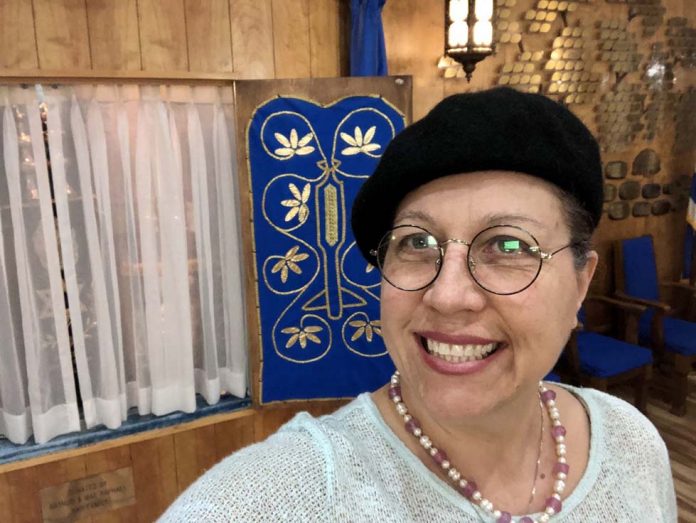Hefsiba “Jen” Cohen, Special to Valley News
In this Torah portion, Devarim, Moses is talking to the Israelites and recapping the events that happened since they had been in the wilderness. It was 37 days before Moses died, and he repeated the Torah to the assembled nation of Israel – emphasizing the significant laws and events that Israel experienced during the 40 years of dwelling in the wilderness. Moses admonished them for failures and encouraged them to keep the commandments of God, reminding them that they are about to receive an eternal inheritance – their Promised Land. It was one of the last times Moses would address this nation whom he loved as his own children.
In these first three chapters of Deuteronomy, an interesting repetition of a single theme seems to quietly emerge – the theme of fear.
In the first chapter, a Hebrew word for fear, “gur,” is used in the context of administering justice.
“You shall not be partial in judgment: hear out low and high alike. Fear no man, for judgment is God’s,” Deuteronomy 1:17.
Total impartiality is required for administering justice.
“Do not be intimidated of their faces,” according to the verse.
Israel was to promote and institute justice regardless of social class or other attributes that could corrupt judgment.
In the next chapter, it speaks about fear in the context of respect and awe; see Deuteronomy 2:25. God said he will put the fear of ancient Israel in the heart of the nations that surround them who were seeking to destroy them.
“This day I begin to put the dread and fear of you upon the peoples…” according to the verse.
The word for “fear” in this context – “yireh” – is also translated as “respect” or “reverence” and can build upon the concept mentioned in the previous chapter, where a people are most likely to be respected and revered when they fearlessly stand for justice.
In the third chapter of the reading, this word fear, or yireh, is used twice in the context of having no fear in the face of enemies in Deuteronomy 3:2-22. How could Israel make a conscious choice not to fear enemies? Fear is a psychological reaction and is not a voluntary response. Israel is nevertheless told not to fear her enemies and is even told it twice for emphasis in the chapter. Fear must be possible to overcome or else this command would not exist here.
The best way to understand this last prohibition of fearing enemies builds upon the last two uses of “fear.” While we are certainly not ancient Israel and therefore must study the Torah in its intended historical context, nevertheless, it reveals timeless lessons for us today. Once we have courage to stand for what is right in the face of injustice, we are more likely to be respected by those around us. When we are respectable representatives of justice, we are more likely to be fearless against our enemies, knowing that we have God on our side.
“Do not fear them, for it is (HaShem) your God who will battle for you,” according to the passage.
We want to be fearless against the threats to our peace and happiness be they human or otherwise, but it takes steps to get there. With the Torah as our guide, striving for justice, including social justice, living in a way deserving of respect and most importantly, having trust in our God are first steps of true courage.
Hefsiba Cohen is a student rabbi and adult educator.
Congregation B’nai Chaim is located at 29500 Via Princesa in Murrieta. For more information, visit https://www.bnaichaim.com or find them on Facebook.









